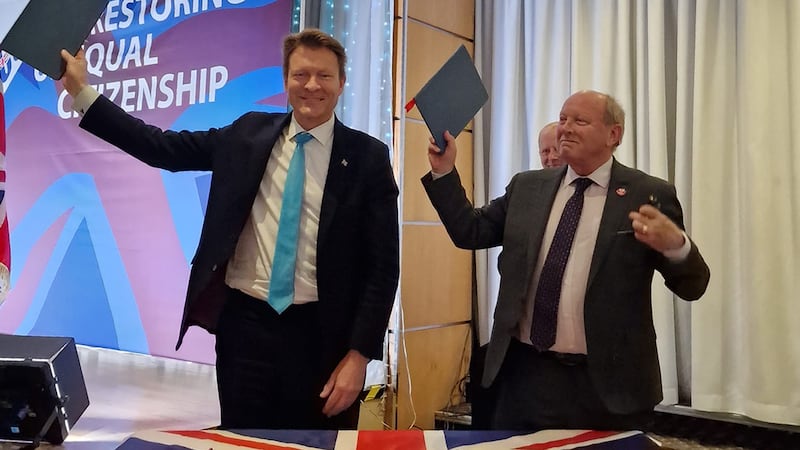SIR Cliff Richard and Paul Gambaccini are both angry men. Angry men who are determined to see the law changed and who hope they might just have the clout to do it.
Along with the widow of former home secretary Leon Brittan, they were at the UK parliament this week to press their case for people accused of sexual offences to have the right to anonymity until the point of being charged with an offence.
They are not the first campaigners on this issue and are unlikely to be the last. As night follows day, so such calls come after high-profile sex abuse cases end in acquittal, or, in the case of the two music industry legends, allegations and subsequent investigations do not even make it to court.
No one likes to be accused of something they didn’t do, and Sir Cliff and Gambaccini have both bitterly reflected in subsequent press interviews that there will be some who still believe there is `no smoke without fire’ and resent that “stain” on erstwhile spotless reputations.
The argument, repeatedly made under such circumstances, is that the accused should be entitled to some sort of parity with the alleged victim, who is granted lifelong anonymity.
It could gain more traction than other attempts to change laws have, not least because such a `level playing field’ did indeed used to exist.
The Sexual Offences Act 1970 introduced anonymity for those accused of rape but this was repealed in 1988, enabling defendants to be named.
That change happened because it was deemed that anonymity was discouraging women to come forward in rape cases.
Sex abuse cases have a notoriously low conviction rate. In Northern Ireland, there were just 83 convictions for rape between 2009 and 2013.
More than 2,000 cases were passed to the Public Prosecution Service (PPS) by police between 2010-14, but in 83 per cent of cases the decision was taken not to prosecute.
In 97 per cent of cases that decision was taken because they "did not pass the evidential test".
Efforts are being made within the PPS to address this and only time will tell if they will succeed.
The implication of those who argue that the identities in all those 2,000-plus cases should remain hidden is that the crime is so heinous and shameful that their reputation is automatically destroyed.
However, that is to misunderstand, perhaps in some cases wilfully, the depressing cultural reasons why the alleged victims must be granted anonymity.
Consider that arguably the worst crime that one person can commit is to take the life of another human being, yet no one seriously argues for those arrested and investigated for murder to be granted anonymity.
For the argument of stained character to be convincingly made, it should follow that any crime deemed heinous by society could lead to a permanently damaged reputation.
Of course the murder victim is always identified to the public. Their identity is often volunteered by the police in an attempt to help catch their killer.
Murder victims are very unlikely to be blamed for what happened to them.
The reason the identity of sexual assault and abuse victims is protected is in part because, despite the fact it is 2016 and we are supposed to be living in a progressive and civilised society, were their names to be known they might be abused in another way.
The troubling case of footballer Ched Evans is a case in point.
In 2012, during an earlier case before his recent acquittal, nine people were fined after admitting to revealing online the identity of a woman who he was accused of raping.
The woman's name was circulated on social networking sites, including Twitter and Facebook, after Evans's original conviction, at Caernarfon crown court.
Some of the defendants also abused the victim online, calling her names including "money-grabbing slut" and "poor little victim".
It is worth noting that the woman maintained that she had no memory of what happened and it was the Crown Prosecution Service who deemed it met their tests and pursued the case.
And still she was trolled and slandered.
Meanwhile, even in the statistically rare cases where a conviction is secured, victims (both male and female) report being brutalised by the adversarial system that requires them to relive their ordeal and be subject to forensic interrogation by experienced lawyers.
I truly feel for those who are wrongly accused of any crime and have to live with the suspicion of strangers while the investigation or indeed case runs its course.
However, calls to grant those accused of rape and sexual assault anonymity in order to create a level playing field overlooks one key point.
It’s not a level playing field. Not for the victims.








